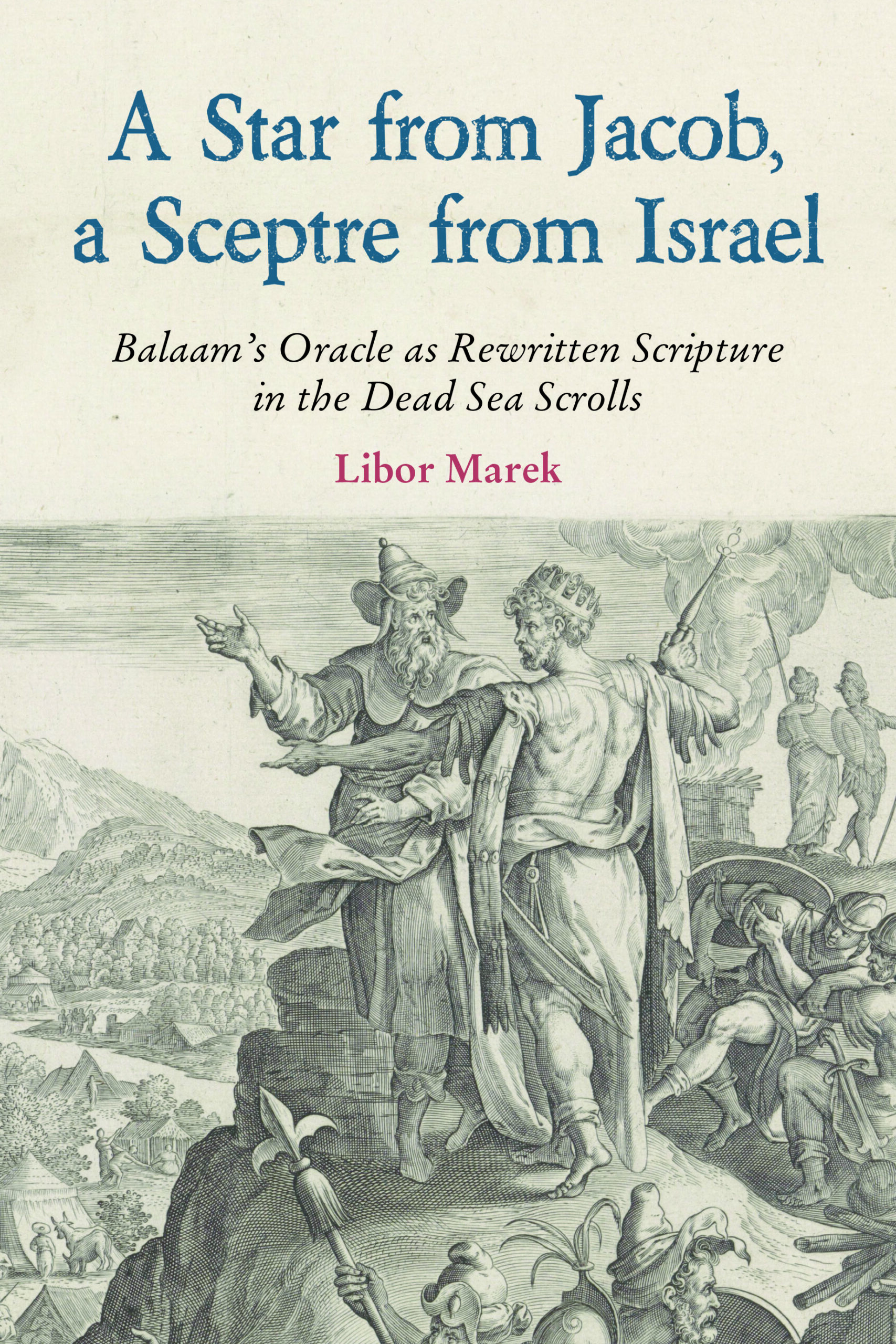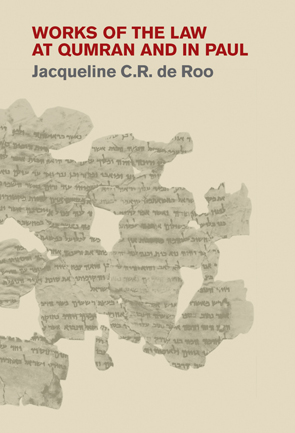From Qumran to Jude: A History of Social Crisis at Qumran and in Early Jewish Christianity
Published: Jun 2023
£65.00
Many have noted the Qumran-like language of Jude. Chris Armitage provides a detailed comparative consideration of the similarities between Jude and the Dead Sea Scrolls peshers in the Hebrew Bible. The writers, in each of these texts, frequently appeal to examples of eschatological punishment for deviant theology and conduct, from the Hebrew Bible.
This study delves systematically into Jude’s use of pesher technique—appropriating a Hebrew Bible example of deviant teaching and behaviour and its eschatological consequences and applying it to the present—and shows, across the divide of Koine Greek and Classical Hebrew, that this is same technique as found in the Dead Sea Scrolls.
Armitage infers that similar socio-theological crises faced Jude’s and the Qumran community, requiring each to generate literature containing purity and pollution rhetoric, derived from remodelling Hebrew Bible predictions of eschatological punishment to fit its own time, in order to ensure internal solidarity.
From Qumran to Jude: A History of Social Crisis at Qumran and in Early Jewish Christianity
£65.00
Many have noted the Qumran-like language of Jude. Chris Armitage provides a detailed comparative consideration of the similarities between Jude and the Dead Sea Scrolls peshers in the Hebrew Bible. The writers, in each of these texts, frequently appeal to examples of eschatological punishment for deviant theology and conduct, from the Hebrew Bible.
This study delves systematically into Jude’s use of pesher technique—appropriating a Hebrew Bible example of deviant teaching and behaviour and its eschatological consequences and applying it to the present—and shows, across the divide of Koine Greek and Classical Hebrew, that this is same technique as found in the Dead Sea Scrolls.
Armitage infers that similar socio-theological crises faced Jude’s and the Qumran community, requiring each to generate literature containing purity and pollution rhetoric, derived from remodelling Hebrew Bible predictions of eschatological punishment to fit its own time, in order to ensure internal solidarity.
A Star from Jacob, a Sceptre from Israel: Balaam’s Oracle as Rewritten Scripture in the Dead Sea Scrolls
Published: Sep 2020
£70.00
The fourth Balaam oracle (Numbers 24.17-19) appears in four separate Dead Sea Scrolls. But how it is used and understood remains puzzling and challenging.
All four scrolls agree that the biblical text is a living artifact and endorse its authority. But they disagree on what it may mean to the audience of their own day. They adjust, rephrase and rework the biblical text according to their own needs and for the benefit of their audience.
Following the twists and turns in this process of interpretation and rewriting has two benefits: first, we become more sensitized to the complexity of the processes by which the scriptural text came into being and to the fact that this process did not have a clear-cut end in mind. Rather, it is thanks to a constant reworking of the scriptural text that it remains alive for its readers. Second, in following closely the process of reinterpretation of this particular text we gain a better understanding of the world of Qumran, of the communication strategy of the Scrolls, and of some of their key theological concepts. In particular, Qumran beliefs about a messiah become more vividly tangible.
A Star from Jacob, a Sceptre from Israel: Balaam’s Oracle as Rewritten Scripture in the Dead Sea Scrolls
£70.00
The fourth Balaam oracle (Numbers 24.17-19) appears in four separate Dead Sea Scrolls. But how it is used and understood remains puzzling and challenging.
All four scrolls agree that the biblical text is a living artifact and endorse its authority. But they disagree on what it may mean to the audience of their own day. They adjust, rephrase and rework the biblical text according to their own needs and for the benefit of their audience.
Following the twists and turns in this process of interpretation and rewriting has two benefits: first, we become more sensitized to the complexity of the processes by which the scriptural text came into being and to the fact that this process did not have a clear-cut end in mind. Rather, it is thanks to a constant reworking of the scriptural text that it remains alive for its readers. Second, in following closely the process of reinterpretation of this particular text we gain a better understanding of the world of Qumran, of the communication strategy of the Scrolls, and of some of their key theological concepts. In particular, Qumran beliefs about a messiah become more vividly tangible.
Works of the Law at Qumran and in Paul
Published: Mar 2007
£60.00
The phrase 'works of the law' occurs only in the Dead Sea Scrolls and in Paul, but it has a different connotation in each corpus.
At Qumran, the 'works of the law' are deeds of obedience to God's law, and are ultimately inspired by God. They function as a means of atonement, whether for the individual who performs them or for the sins of others.
For Paul, on the other hand, the 'works of the law' are quintessentially the works of Abraham. Though they are indeed good deeds, Abraham himself was a sinful man, and so his deeds could not make atonement for himself or for others. In fact, Paul is reacting against the idea of Abraham as a redeemer figure that was held by some of his contemporaries.
The phrase 'works of the law' thus takes on a negative coloration in Paul, as a deceptively false means of salvation. In contrast to Qumran, Paul's position is that justification must be effected 'apart from works of the law', and thus by Jesus Christ. Abraham is no 'second Adam', as some were thinking, and his good deeds, epitomized in his sacrifice of Isaac, had no atoning value.
This closely reasoned study makes an important contribution to the study of New Testament theology; it undertakes to settle some long-standing debates about Paul's soteriology by proposing an alternative both to traditional interpretation of Paul and to the 'New Perspective on Paul'.
Works of the Law at Qumran and in Paul
£60.00
The phrase 'works of the law' occurs only in the Dead Sea Scrolls and in Paul, but it has a different connotation in each corpus.
At Qumran, the 'works of the law' are deeds of obedience to God's law, and are ultimately inspired by God. They function as a means of atonement, whether for the individual who performs them or for the sins of others.
For Paul, on the other hand, the 'works of the law' are quintessentially the works of Abraham. Though they are indeed good deeds, Abraham himself was a sinful man, and so his deeds could not make atonement for himself or for others. In fact, Paul is reacting against the idea of Abraham as a redeemer figure that was held by some of his contemporaries.
The phrase 'works of the law' thus takes on a negative coloration in Paul, as a deceptively false means of salvation. In contrast to Qumran, Paul's position is that justification must be effected 'apart from works of the law', and thus by Jesus Christ. Abraham is no 'second Adam', as some were thinking, and his good deeds, epitomized in his sacrifice of Isaac, had no atoning value.
This closely reasoned study makes an important contribution to the study of New Testament theology; it undertakes to settle some long-standing debates about Paul's soteriology by proposing an alternative both to traditional interpretation of Paul and to the 'New Perspective on Paul'.



